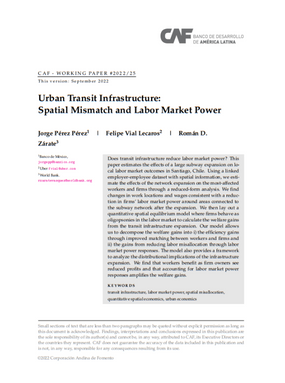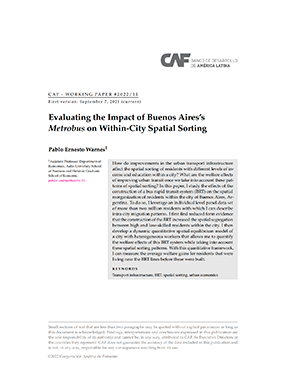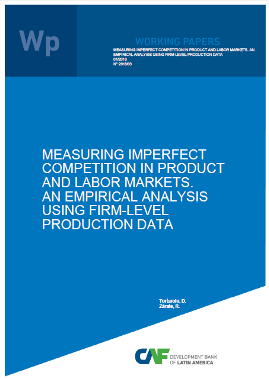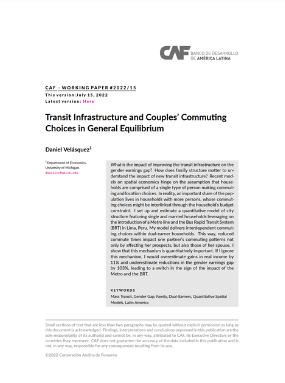Urban Transit Infrastructure: Spatial Mismatch and Labor Market Power
Resumen
Does transit infrastructure reduce labor market power? This paper estimates the effects of a large subway expansion on local labor market outcomes in Santiago, Chile. Using a linked employer-employee dataset with spatial information, we estimate the effects of the network expansion on the most-affected workers and firms through a reduced-form analysis. We find changes in work locations and wages consistent with a reduction in firms’ labor market power around areas connected to the subway network after the expansion. We then lay out a quantitative spatial equilibrium model where firms behave as oligopsonies in the labor market to calculate the welfare gains from the transit infrastructure expansion. Our model allows us to decompose the welfare gains into i) the efficiency gains through improved matching between workers and firms and ii) the gains from reducing labor misallocation through labor market power responses. The model also provides a framework to analyze the distributional implications of the infrastructure expansion. We find that workers benefit as firm owners see reduced profits and that accounting for labor market power responses amplifies the welfare gains.
Materia
País / Región
Fecha
2022-09Citar de esta publicación
Item perteneciente a la Colección
Autor
Pérez, JorgeVial, Felipe
Zárate, Román
Items Relacionados
Evaluating the Impact of Buenos Aires’s Metrobus on Within-City Spatial Sorting
How do improvements in the urban transport infrastructure affect the spatial sorting of residents with different levels of in-come and education within ...
Measuring Imperfect Competition in Product and Labor Markets. An Empirical Analysis using Firm-level Production Data
In this paper, we develop a simple theoretical model that allows us to disentangle empirically the extent of imperfect competition in product and labor ...
Transit Infrastructure and Couples’ Commuting Choices in General Equilibrium
What is the impact of improving the transit infrastructure on the gender earnings gap? How does family structure matter to un‐derstand the impact of new ...





